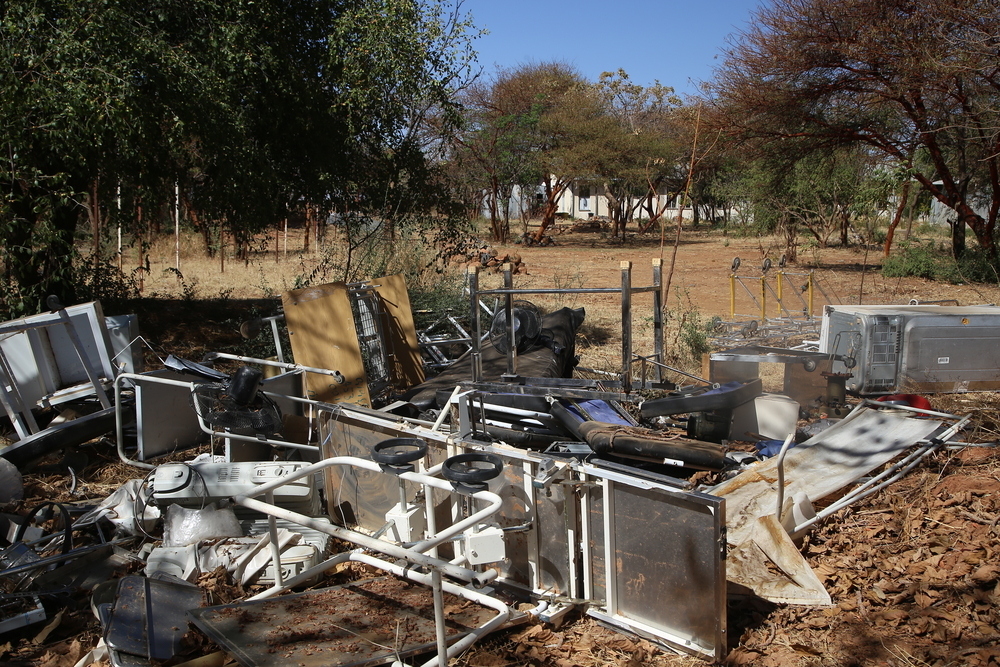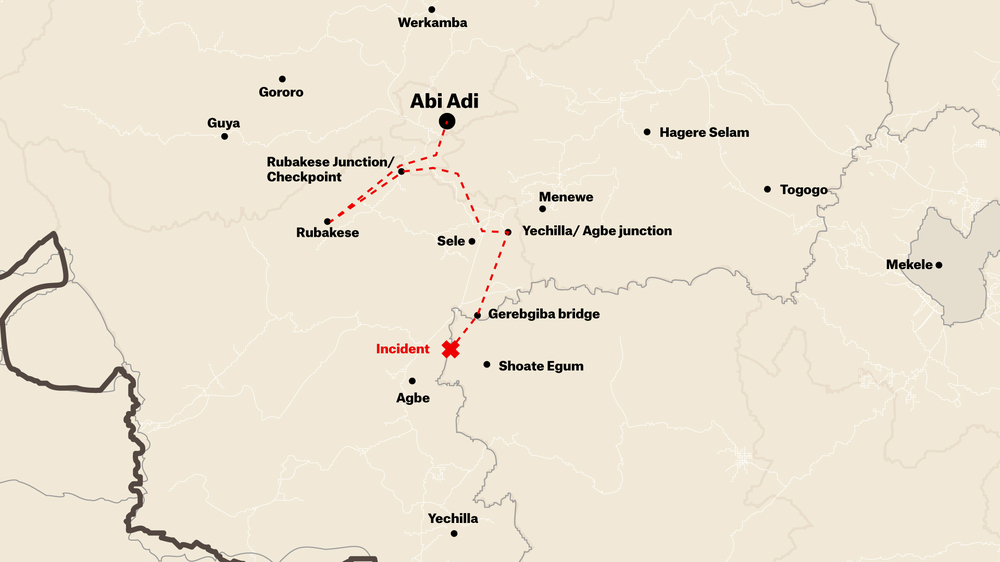Nairobi / Madrid, 15 July 2025 — Médecins Sans Frontières/Doctors Without Borders (MSF) has published the findings of an internal review into the brutal killing of three of its staff members — María Hernández Matas, Tedros Gebremariam Gebremichael, and Yohannes Halefom Reda — in central Tigray, Ethiopia, on 24 June 2021.
The review confirmed that the attack was an intentional and targeted killing of three clearly identified aid workers. It also established that a convoy of Ethiopian National Defense Forces (ENDF) was present at the time of the incident, on the same road where the MSF personnel were killed.
María, Tedros, and Yohannes were working with MSF to provide medical care in the conflict-affected region of Tigray. On 24 June 2021, they were travelling in a clearly marked MSF vehicle to a village near Abi Adi town in central Tigray to refer patients who had been wounded in recent fighting. During their journey, their vehicle was intercepted, and they were killed.
Four years on, MSF still does not have credible answers about what happened to its team members, despite tireless attempts to engage with both the Federal Democratic Republic of Ethiopia (FDRE) and the Tigray People’s Liberation Front (TPLF) — both of whose forces were present in the wider conflict zone.

Immediately after the incident, MSF launched an internal review – its standard practice following a critical security incident. The evidence confirmed that the attack on the MSF team was intentional and targeted. The victims — all wearing white vests clearly marked with the MSF logo and traveling in a vehicle visibly displaying the MSF logo and flag — were shot multiple times at close range, while facing their attacker. Their bodies were found up to 400 metres from their vehicle, which was burned and riddled with bullets.
MSF’s internal review also clearly established that a large retreating convoy of the ENDF was moving south on the same stretch of road where MSF’s staff members were killed on the day of the attack. This was corroborated by multiple sources available in the public domain, including media reports and open-source satellite imagery, as well as several civilian witnesses.
Beyond the confirmed presence of the ENDF in the area, what remains to be clarified is the extent and nature of their involvement in the attack. MSF received concerning witness accounts — including from civilians travelling with the ENDF convoy in various capacities — that directly implicated ENDF soldiers in the attack. One witness reported overhearing a radio exchange where an ENDF commander gave orders to “shoot” at an approaching white car and “remove them”.

Since 2021, MSF has held over 20 high-level meetings with officials in the Ethiopian government and submitted numerous formal requests for a credible, transparent investigation to be carried out, and for findings to be shared.
MSF is making this internal review public not only out of moral obligation, but also to demand that governments protect humanitarian workers and medical facilities and that those responsible for attacks on humanitarians and medical staff are held accountable. Attacks on humanitarian personnel are rising globally, while states increasingly neglect their duty to investigate and prosecute violations of international humanitarian law, and the international community continues to look away
The brutal killing of María, Tedros, and Yohannes is an emblematic case of the dangers faced by humanitarian workers. If there is no investigation of such an egregious attack, it sets a dangerous precedent in Ethiopia and reinforces an alarming pattern of impunity for attacks on healthcare globally.
-
Related:
- Conflict in Tigray
- report
- Tigray
- Tigray crisis












